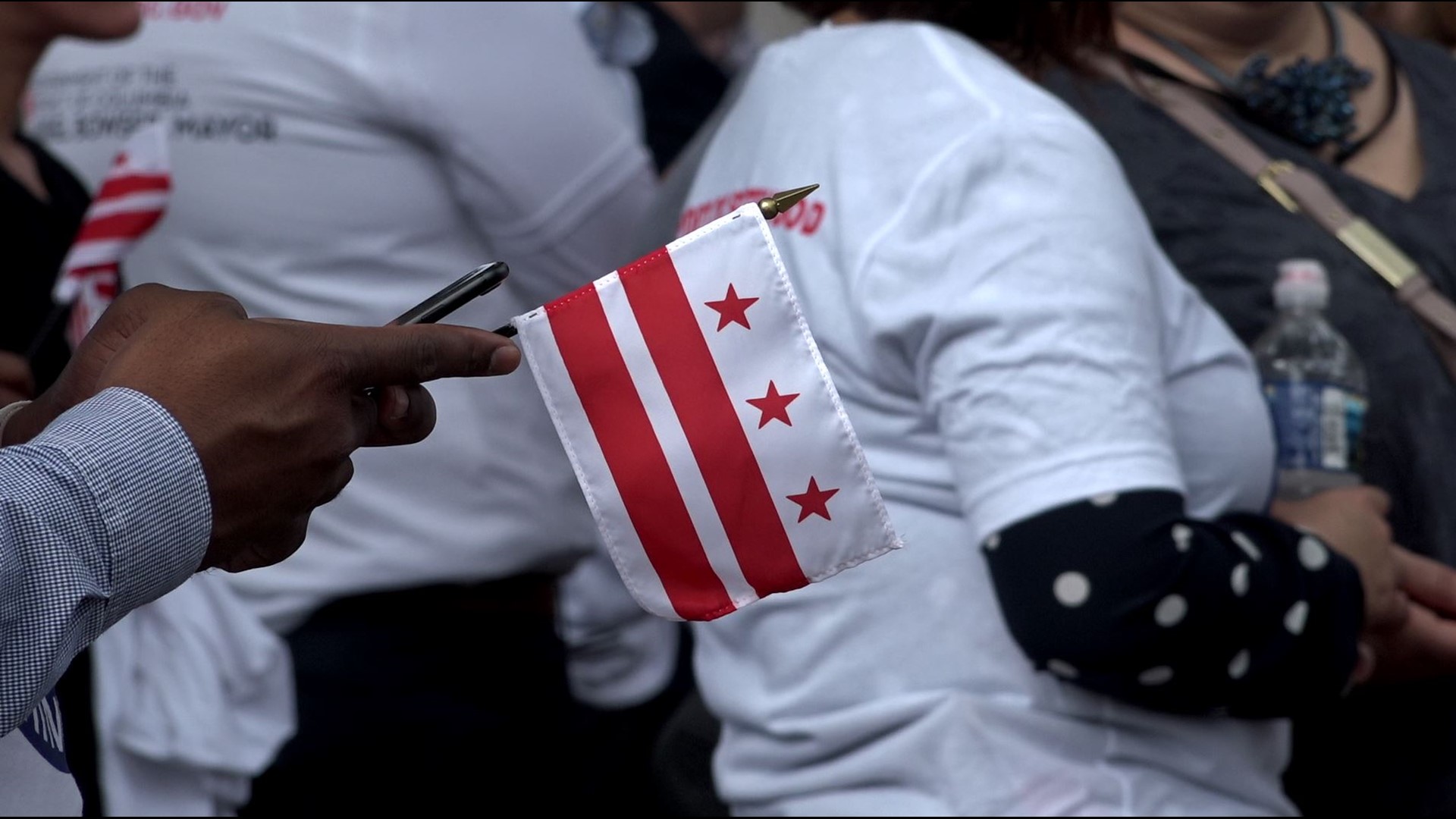WASHINGTON — On an August morning, a group of about 15 young people from D.C., flocked to the Russell Senate Building. In the center of the group was J'Ta Freeman, a birthday cake in her hands.
That's when the singing began.
"Happy birthday dear J'Ta," the group sang out, their voices echoing through the historic building.
The group stopped at the office of Colorado Senator Michael Bennet, a Democrat, who has been in the national spotlight for months, as he campaigns for president.
"My birthday is tomorrow," J'Ta explained to an aide of Bennet. "I will be turning 18. And with that comes the ability to vote. And so I would just want my voice to matter as a D.C. resident."
The young people are part of a much larger group called 51 For 51, which is advocating for D.C. to become the 51st state. It's an effort that's been tried many times before.

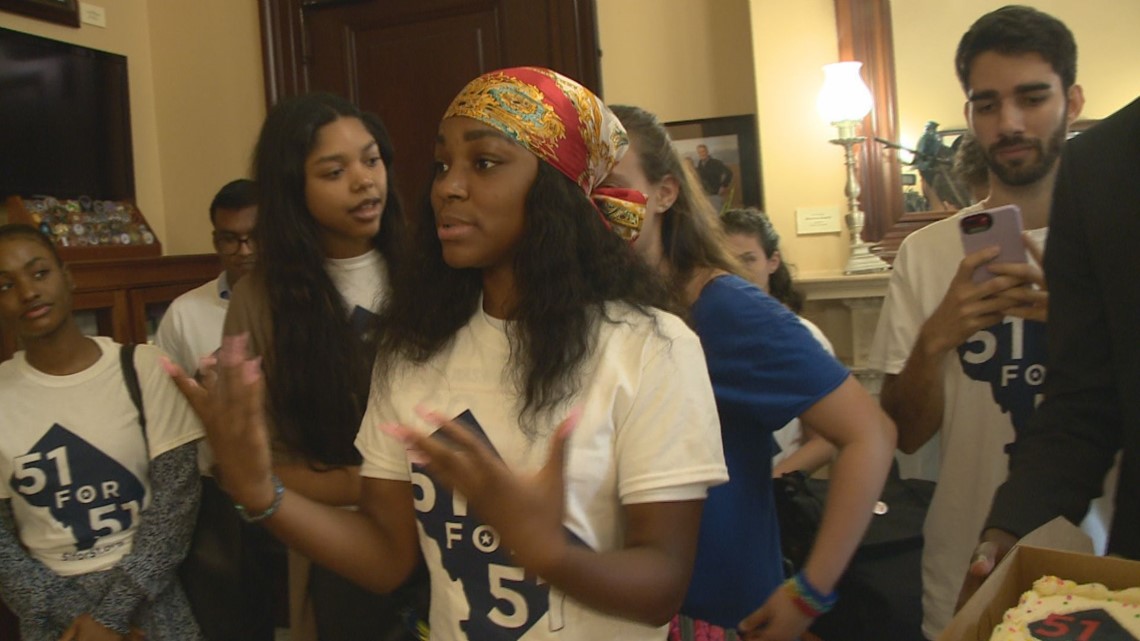
What makes this group unique though is their strategy. The advocates are trying to change the rules in the Senate, to get rid of the filibuster for bills, relating to D.C. statehood.
The Background:
To understand the group's strategy, one must first have some background information on how the American political system works.
Traditionally, there must be a simple majority in the Senate to pass any bill. That means there would have to be a coalition of 51 Senators, or a combination of 50 Senators and the Vice President, to pass a bill.
However, in the modern era, this has been complicated by the filibuster, a maneuver by which a Senator or a group of Senators, can delay a vote indefinitely if they continue talking on the floor. In the modern political system, it's become commonplace for political parties to threaten the filibuster to delay controversial votes.
This is when it becomes a numbers game. The only way to stop a filibuster is through a "vote of cloture," in which 60 Senators come together to vote that the filibuster should end.
This system has created a political reality: To pass a controversial bill in the Senate, there realistically must be 60 Senators on board. Anything less, and the bill will be stopped in it's tracks.
The Strategy:
The advocates from 51 For 51 want to change the rules in the Senate. Their mission seems unlikely with a Republican majority, but they are hopeful that an incoming Democrat-lead Senate could make this change, if they succeed in the 2020 elections.
They are pushing for the Senate to change their rules, so that the filibuster can not be used for statehood votes. This type of rule change could be made with a simple majority.
"We need to have a vote," J'Ta said. "We need to have a voice. Especially because all of this is happening in our city."
This idea of weakening the filibuster is nothing new. The first crack started to form in 2013, when the Democrats held a Senate majority. Sen. Majority Leader Harry Reid triggered the "nuclear option," for the first time. In this move, the Senate voted to change the rules, so that it only took a simple majority to confirm lower-level nominees in the executive and judiciary.

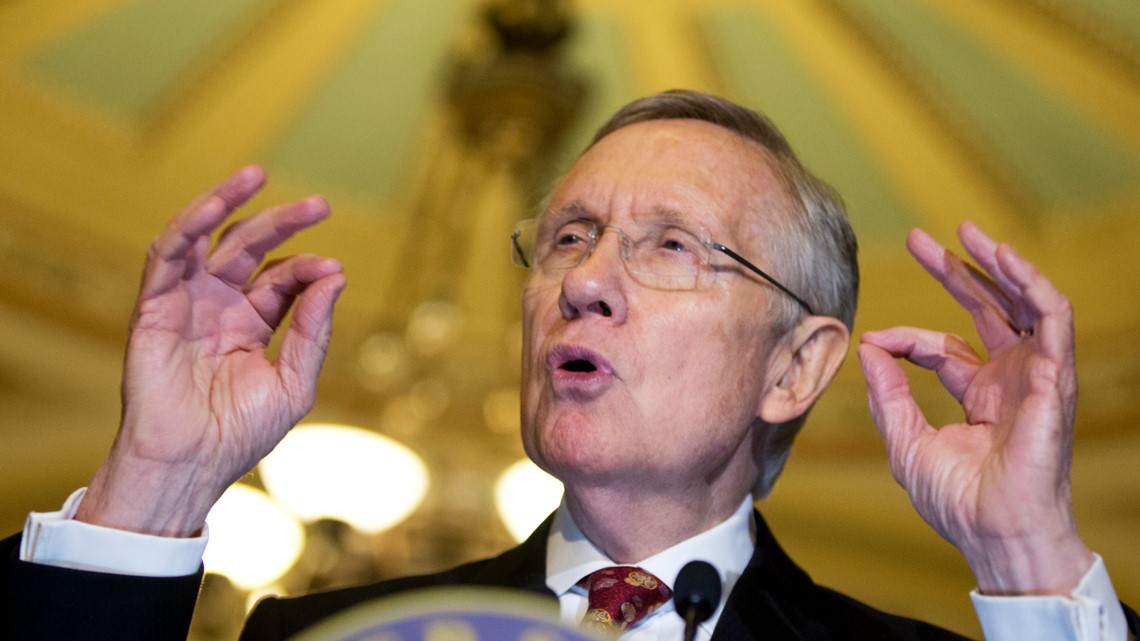
Alan Morrison, the Associate Dean at George Washington University's Law School, said this was a momentous move.
"Until the filibuster is changed by the Democrats," he said. "During the Obama administration, nobody wanted to touch the filibuster."
Four years later, this move would come back to bite them. The Republicans were in control, and Sen. Majority Leader Mitch McConnell lead his party to use the 'nuclear option,' once again, this time to confirm Supreme Court Justices, with just 51 votes.

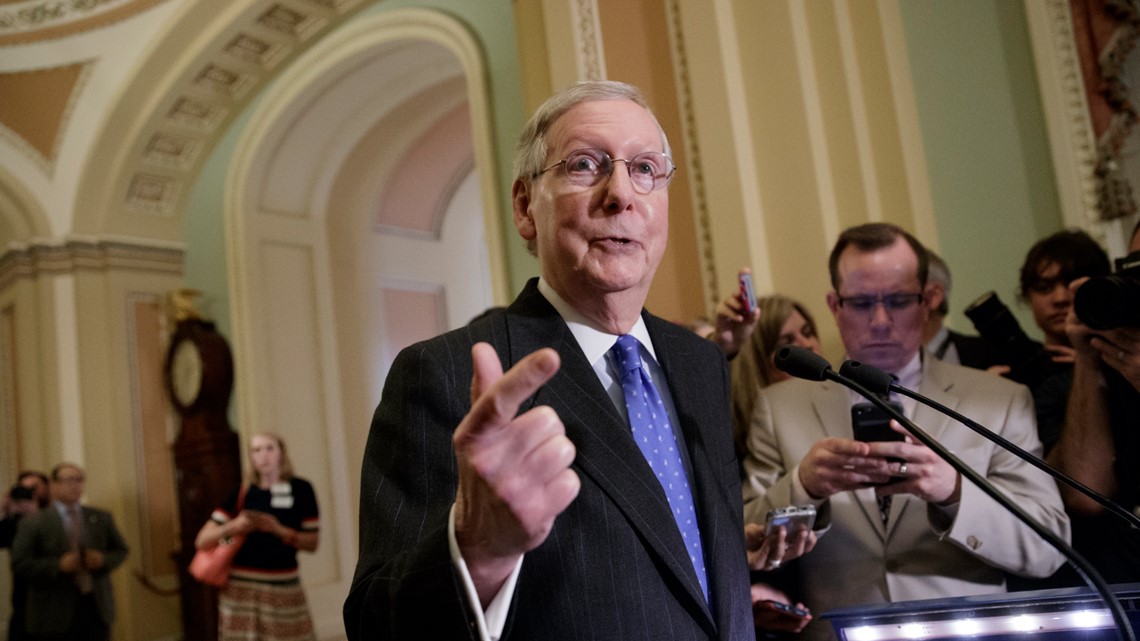
Morrison said this move further diminished the filibuster.
"Once you start to unravel the filibuster with one party," he said. "There's no way to put it back together again."
Eliminating the Filibuster; Solving Inaction or Slippery Slope?:
So what's the future of the filibuster?
Some are calling for it's complete abolition, arguing that it leads to inaction. That includes Sen. Reid, now retired, who recently wrote an Op-Ed in the New York Times, arguing that the filibuster is "suffocating the will of the American people."
The effort has also received support from presidential candidates, like Massachusetts Senator Elizabeth Warren. At last week's debate in Houston, she argued that the filibuster blocks legislation on difficult issues like gun reform.
Then there's the other side.
Many believe that the filibuster is an important part of our democratic system, which should be protected. Those who believe in the filibuster argue that this maneuver gives the minority a voice, and forces compromise.
Sen. Bennet has been a fierce protector of the filibuster, arguing that the 51 For 51 effort is a slippery slope. He supports statehood, but doesn't think this is maneuver is the way to get it.

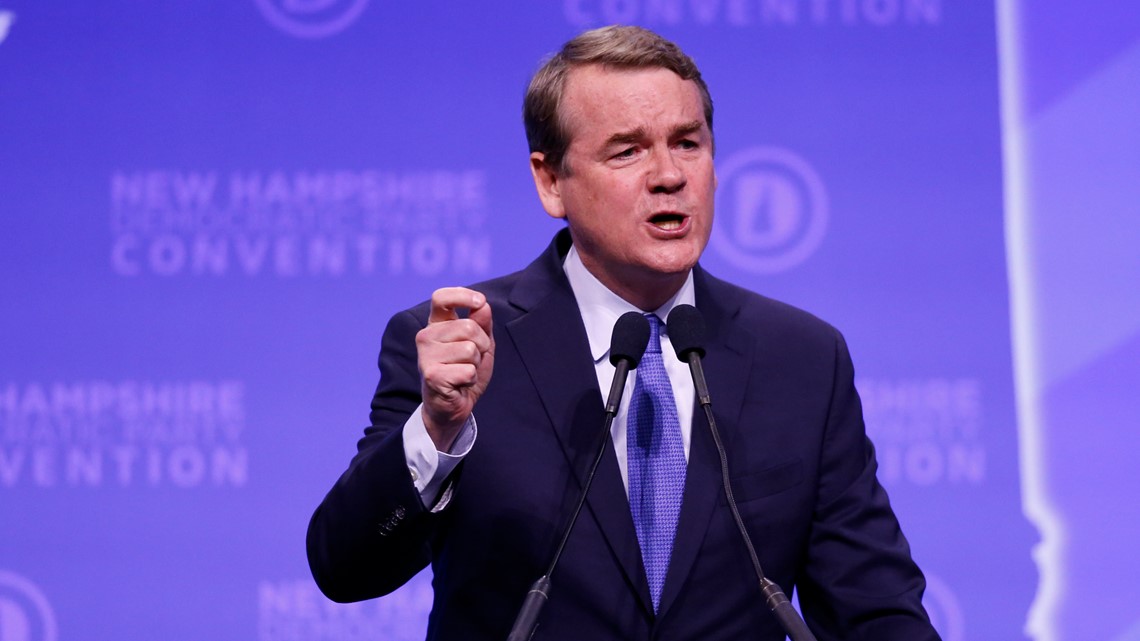
"If we eliminate the filibuster to get our way," he said. "We then have to accept the fact that Republicans can use that rule change... Instead of focusing on changing the rules, we should be focused on creating a constituency for change and developing bipartisan solutions."
The Lobbying:
The group of advocates have been busy this campaign season, lobbying presidential candidates like Bennet. They've traveled to early voting states and debates, to put candidates on the record.
So far, 13 past and present candidates have indicated their support, including eight who remain in the race. So far the group has the support of Sen. Warren, South Bend Mayor Pete Buttigieg, entrepreneur Andrew Yang, former HUD Secretary Julian Castro, Montana Gov. Steve Bullock, Rep. Tim Ryan, New York City Mayor Bill De Blasio, and former Rep. John Delaney.
Former Vice President Joe Biden, the current front-runner, is yet to commit to this approach, despite lobbying efforts by 51 For 51.
So... Is This Possible?
There is a political reality that must be addressed.
This will be a very difficult path for 51 For 51. Republicans are unlikely to support statehood, since it would most likely create two new seats for the Democrats. For that reason, they'd need a whopping Democrat takeover in 2020, in which they get majorities in the House and Senate, while taking the White House as well.
Even then, their work wouldn't be done. These advocates would need 51 Democrats who are on board with changing the filibuster rules, which is no guarantee. If other Senators feel the way Bennet do, the path toward a rule change could be perilous.
Nonetheless, J'Ta said the fight must continue, because the issue is that important.
"It's not fair for DC residents to not have a vote," she said. "Because of somewhere where we decide to live. It's not fair and it's a human rights issue. And we have to fix this."

